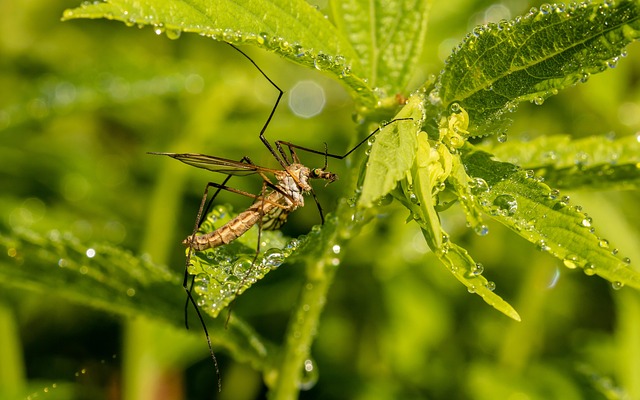Mosquitoes pose significant global health challenges, acting as disease vectors for various illnesses. Effective mosquito control is crucial for public health and economic stability, especially in regions with limited healthcare access. Traditional methods like insecticides and physical removal have drawbacks, including resistance and ecological imbalances. Natural solutions, DIY repellents, and plant-based controls offer greener alternatives. Community collaboration, education, and innovative technologies like smart sensors and genetic engineering are essential for modern mosquito control. Integrated Mosquito Control (IMC) provides a comprehensive strategy, combining various methods for long-term, sustainable results.
Mosquitoes are more than just a nuisance; they pose significant health risks, carrying diseases like malaria, dengue, and Zika. Understanding their behavior and habitat is crucial for effective mosquito control. This article explores various affordable and sustainable methods to combat these pests. From DIY repellents and natural plants to community efforts and technological innovations, we delve into strategies that reduce mosquito populations long-term. Discover practical tips and learn how you can contribute to a healthier environment with efficient mosquito control techniques.
Understanding Mosquitoes: Behavior and Habitat
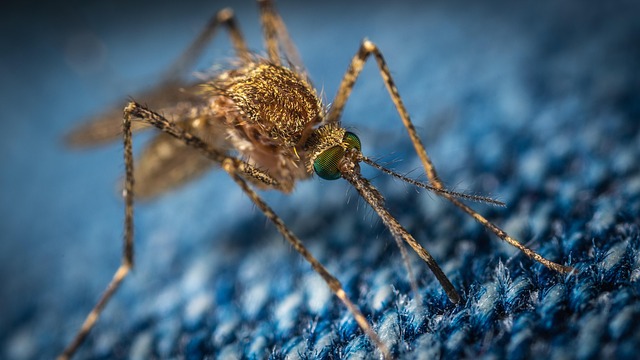
Mosquitoes are more than just a nuisance; they are tiny pests with a significant impact on human health and well-being. Understanding their behavior and habitat is crucial for effective mosquito control. These insects thrive in standing water, breeding rapidly in as little as a few millimeters of moisture. They are most active during dawn and dusk, when they seek blood meals from hosts, including humans and animals. Their intricate life cycle involves four stages: egg, larva, pupa, and adult, with each stage requiring specific environmental conditions for optimal development. By identifying their habitats and understanding these behavioral patterns, we can implement targeted mosquito control measures to create a more comfortable living environment.
Delving into their behavior reveals clever strategies for survival. Mosquitoes are attracted to carbon dioxide, heat, and certain chemicals found in human sweat, making them adept at locating hosts. They possess excellent navigation skills, using celestial cues and the Earth’s magnetic field to travel long distances. This knowledge allows us to explore various repellents and traps that can disrupt their behavior and reduce their population, ultimately providing relief from these persistent pests.
The Impact of Mosquitoes: Health Risks and Economic Costs
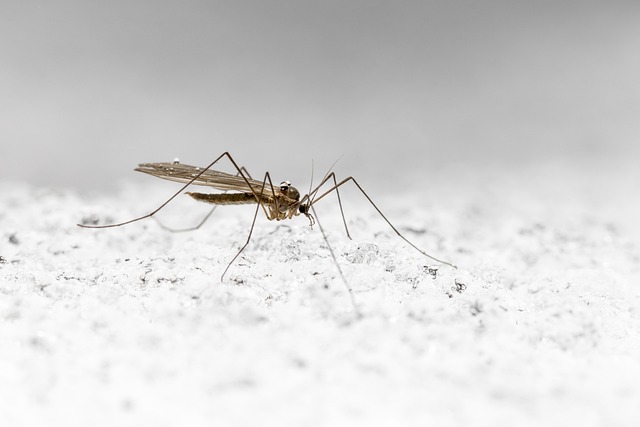
Mosquitoes, though small in size, pose significant health risks and economic burdens worldwide. These flying insects are known vectors for various diseases, including malaria, dengue fever, Zika virus, and West Nile virus. The impact of mosquito-borne illnesses is profound, leading to severe health complications, hospitalizations, and even deaths, particularly in regions with limited access to healthcare.
Beyond the direct health risks, mosquitoes contribute to substantial economic costs. They damage crops, reducing agricultural productivity, and disrupt outdoor activities, affecting tourism and recreational industries. The need for Mosquito Control measures is evident to mitigate these issues. Effective strategies, such as eliminating breeding grounds, using insecticides, and implementing personal protective equipment, play a crucial role in minimizing mosquito populations and the associated risks and costs.
Traditional Mosquito Control Methods: Successes and Limitations

Traditional mosquito control methods have been in practice for decades, employing various techniques to manage and reduce mosquito populations. One common approach is the use of insecticides, which can be applied as sprays or drops in areas where mosquitoes breed and rest. While this method has shown success in reducing mosquito numbers, it also comes with limitations. Insecticides can have adverse effects on non-target organisms, including beneficial insects, birds, and aquatic life, leading to ecological imbalances. Moreover, the development of insecticide resistance in mosquito populations is a growing concern, making these methods less effective over time.
Another traditional method involves physical removal of mosquito breeding sites, such as eliminating standing water from containers and drains. This approach targets specific areas known to attract mosquitoes, but it requires consistent effort and community participation. Additionally, some regions rely on biological control agents like fish or bacteria to suppress mosquito populations, but these methods may not be universally applicable or cost-effective for widespread implementation.
Affordable Alternatives: DIY Mosquito Repellents

In the quest for effective mosquito control, it’s easy to get overwhelmed by expensive commercial options. However, there are affordable alternatives that can offer just as much protection. DIY mosquito repellents are not only cost-effective but also allow you to create natural solutions free from harsh chemicals. Using common household ingredients like citronella oil, lemon eucalyptus, or peppermint essential oils mixed with water or alcohol, you can make your own effective repellents.
These homemade remedies can be easily applied on exposed skin, used in diffusers, or even sprayed around your outdoor living spaces. They provide a greener and more budget-friendly approach to mosquito control, allowing you to enjoy the outdoors without the constant hassle of bites. With a little creativity and resourcefulness, you can take control of mosquito populations in your environment without breaking the bank.
Natural Mosquito Control: Utilizing Plants and Essential Oils
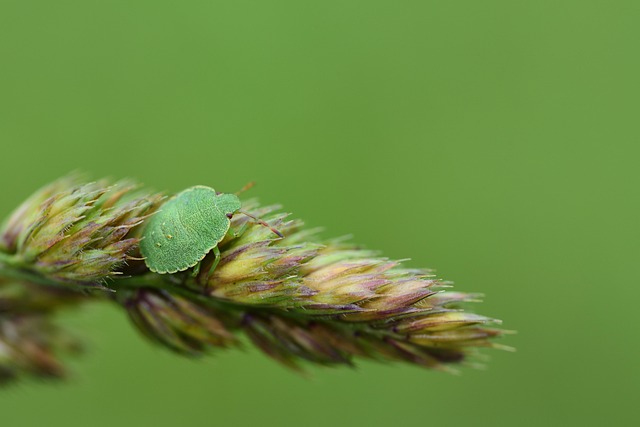
Natural Mosquito Control: The Power of Plants and Essential Oils
One effective yet affordable method for mosquito control is turning to nature’s arsenal. Certain plants and essential oils have been found to deter mosquitoes naturally, providing an eco-friendly alternative to chemical treatments. For instance, citronella grass, known for its pungent scent, has long been used as a natural repellent. Planting this herb around your outdoor spaces can create a protective barrier against mosquito bites.
Essential oils extracted from plants like lemon eucalyptus, lavender, and peppermint also possess powerful properties. These oils can be diffused or applied topically (when diluted) to ward off mosquitoes. Their unique fragrances not only provide a fresh scent but also act as natural insecticides, making them accessible and affordable solutions for mosquito control in both indoor and outdoor environments.
Community-Based Approaches to Mosquito Management
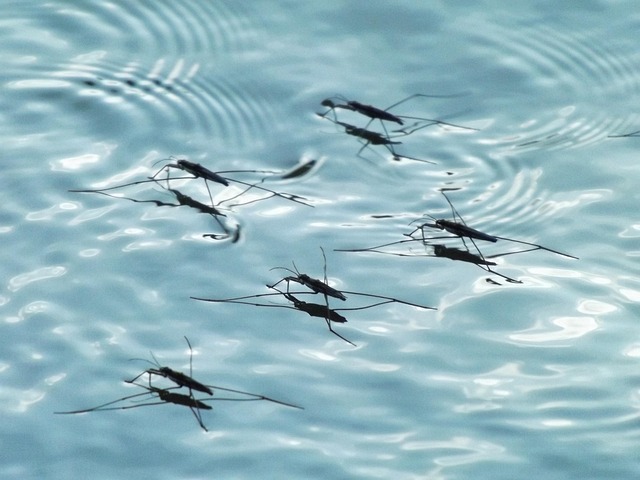
Many communities are adopting community-based approaches to mosquito management, recognizing that collective action is key to effective mosquito control. By engaging residents and local organizations, these initiatives aim to create a unified front against mosquitoes. This involves educating community members about the life cycle of mosquitoes and promoting simple yet powerful practices like eliminating standing water—a breeding ground for mosquitoes.
Such efforts can include neighborhood clean-up drives, where residents collaborate to remove potential mosquito habitats from public spaces. Additionally, community gardens and green spaces can be transformed into mosquito-resistant oases by introducing plant species that naturally repel these pests. These collaborative strategies not only reduce mosquito populations but also foster a sense of collective responsibility for a healthier, more enjoyable environment.
Technological Innovations in Mosquito Control

The world of mosquito control has seen significant advancements thanks to technological innovations. From smart sensors that can detect and track mosquito populations in real-time to advanced spraying systems that use GPS for precise application, modern tools are transforming how we combat these pesky insects. These technologies not only enhance efficiency but also promote the responsible use of chemicals by targeting specific areas, reducing waste, and minimizing environmental impact.
Additionally, genetic engineering and biological control methods offer sustainable solutions. Scientists are developing mosquitoes resistant to diseases, which can help control their numbers naturally. Moreover, introducing beneficial insects like dragonflies and damselflies that feed on mosquitoes helps keep their populations in check ecologically. These innovations collectively point towards a future where mosquito control is more effective, safer, and environmentally friendly.
Long-Term Strategies for Sustainable Mosquito Reduction

Creating a sustainable environment free from mosquitoes requires long-term strategies that go beyond quick fixes. Implementing integrated mosquito control (IMC) is a comprehensive approach that combines various methods to disrupt the mosquito life cycle and reduce their population over time. This includes eliminating standing water, where mosquitoes breed, through regular cleaning and maintenance of outdoor spaces.
Additionally, utilizing natural predators like birds and fish can help keep mosquito numbers in check. Planting mosquito-repelling plants around homes and public areas is another eco-friendly strategy. On a broader scale, community education and involvement are crucial. Teaching residents about the importance of proper waste management, water conservation, and the use of personal protective measures like repellents and nets can significantly contribute to long-term mosquito control efforts.
